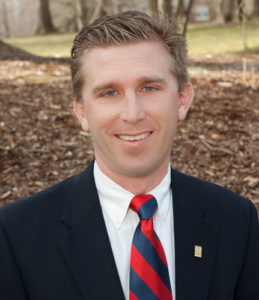Tennessean: GOP caucus decides to have closed-door meetings after all
Jake Lowary with The Tennessean reported yesterday that House Republicans have decided they will decide major issues on pending bills behind closed doors. (See: GOP caucus to have closed-door meeting to decide positions on issues.)
“Caucus positions give us an opportunity to tell people where we believe the vision of the state as House Republicans should be,” said House GOP Caucus Chair Ryan Williams, R-Cookeville, as reported by The Tennessean.
The strategy is a new one. Late last year, Williams told the Capitol Hill press corps that caucus meetings during the legislation session would be presumed open “unless it’s a family discussion.”
The press corp had protested after a closed caucus meeting in December, writing in a letter to the caucus that “…Our fundamental concern is that the Republican caucus, by virtue of its unprecedented size, could act as a de facto legislature, meeting and deliberating in private contrary to the spirit of openness exemplified in the Tennessee Constitution. And although courts have ruled groups of legislators can meet in private, they have never, to our knowledge, affirmed their right to form a quorum outside the public eye.”
But that position changed yesterday. From The Tennessean’s report:
Asked if the caucus would be formalizing positions on current issues like the proposal to raise the state’s gas tax, Williams said he didn’t expect formal positions to be decided on that particular issue, but he has not been given a list of proposed positions on any current issues.
Caucus members have until Feb. 17 to submit proposed caucuswide positions, which will then be aggregated and distributed to members so they can discuss them among themselves before the closed-door meeting, which has yet to be scheduled.
Williams said there could be no proposed positions submitted, and then there would be no need for a closed-door meeting.
He said the positions would be “usually broad” but did not rule out taking a more specific stance on an issue.
“The topics can be broad, but we prefer them not to be,” Williams told the caucus.
I was quoted in the story:
Deborah Fisher, executive director of the Tennessee Coalition on Open Government, said there could be legitimate reasons to have closed-door meetings, which are not uncommon around the country in other legislatures. But there is an obvious risk around the perception of closed-door meetings, she said.
In Tennessee, where Republicans hold a supermajority in the state House and Senate, it’s possible the caucus could determine a position that would pass or defeat pending legislation.
“Because you have a majority and a quorum of the House, in a caucus meeting they could certainly have robust discussion about pending legislation,” Fisher said.
“I think the concern is, which I hope House members are aware of, that (closed caucus meetings) could replace what’s happening in front of the public’s eyes,” she said.
The openness of caucus meetings of a majority party is not without controversy. A table in this document from the National Conference of State Legislatures lists how majority caucuses in various states treat such meetings.
The Senate Republican caucus does not have closed meetings.





